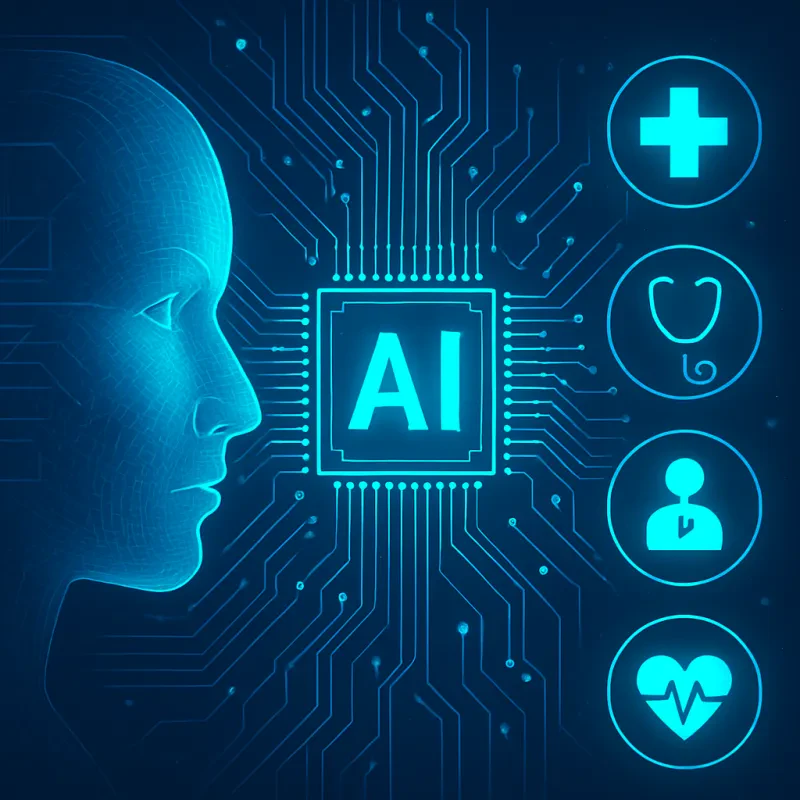AI is shaking things up in healthcare, especially when it comes to patient care. Imagine walking into a clinic and getting help before even speaking to a doctor. AI tools analyze your symptoms, medical history, and even genetic information to give you a personalized experience. This can make your visit quicker and more accurate.
One of the coolest ways AI is making a difference is through predictive analytics. By crunching vast amounts of data, AI can spot patterns that humans might miss. This means doctors can catch potential health issues sooner than ever. A patient at risk of developing a chronic condition gets flagged for early intervention. That can change lives.
AI chatbots are also stepping up. Need advice on a medication? Have questions about your treatment plan? These friendly virtual helpers are available 24/7 for quick guidance. They take some of the load off busy healthcare professionals, letting them focus on the patients who need hands-on care.
Also, let’s talk about AI in diagnostics. Whether it’s scanning images for signs of cancer or analyzing lab results, AI can provide faster, often more accurate conclusions than traditional methods. This speed frees up healthcare providers, allowing them to concentrate on what really matters – patient care.
Boosting Diagnostics with AI Technology
AI technology is a game changer for diagnostics in healthcare. It analyzes medical data faster and more accurately than ever before. Imagine a system that can quickly scan through thousands of medical images or lab results, highlighting potential issues that a busy doctor might miss. That’s what AI does.
With AI, doctors can get insights that make diagnosing conditions easier. For example, AI algorithms can detect early signs of diseases like cancer through image analysis. They spot patterns that are too subtle for the human eye. This means quicker diagnosis and treatment for patients, which is crucial for better health outcomes.
Another cool aspect is how AI helps in personalizing treatment plans. By analyzing your medical history and genetic info, AI can suggest the best therapies tailored just for you. This personalized approach leads to more effective treatments and fewer side effects, making the whole process smoother for patients.
AI streamlines the workflow in healthcare too. It reduces the time it takes for doctors to process data and make decisions. This not only saves time but also lets healthcare professionals focus more on patient care. When technology handles the heavy lifting, everyone benefits.
Efficient Management with AI Systems
AI systems are changing the game for healthcare management. Imagine a world where patient records are organized, and scheduling appointments is a breeze. That's the power of AI. It helps healthcare providers streamline operations and focus on what matters most—caring for patients.
One major benefit is how AI handles data. With mountains of patient information out there, it's easy to get overwhelmed. AI sifts through all that data quickly, picking out important details that doctors need to make informed decisions. This means fewer errors and faster diagnosis, making healthcare safer for everyone.
Scheduling is another area where AI shines. It can match patients with the right doctors or specialists without any hassle. No more long waits on hold or confusing appointment slots. Just quick, easy booking that keeps everything running smoothly.
And let’s not forget about predictive analytics. AI can analyze trends and predict potential health issues before they become serious. This means doctors can address problems early and patients can enjoy better health outcomes.
Overall, AI is like having a smart assistant in the healthcare world. It takes care of the details, so medical professionals can focus on what they do best: helping people live healthier lives.
The Future of Personalized Medicine
Personalized medicine is really hitting its stride, and AI is at the heart of it all. Imagine a world where your treatment plan is tailored just for you, based on your unique genetic makeup and health history. Instead of a one-size-fits-all approach, doctors can use AI to analyze massive data sets and come up with the kind of insights that lead to better health outcomes.
AI helps in predicting how a patient will respond to a certain medication. With tools that can sift through tons of medical research and patient information in a blink, doctors can choose the right drug at the right dosage for you. This not only improves effectiveness but also reduces the chances of side effects. It’s like having a personal coach for your health!
But that’s not all. AI can also spot patterns that might go unnoticed by human eyes. For instance, it can identify biomarkers that suggest how likely someone is to develop a condition, long before symptoms show up. This means you can take action early, making a real difference in your health journey.
What’s exciting is how accessible all of this is becoming. Wearable tech and mobile apps powered by AI are letting people monitor their health in real-time, giving them more control than ever. Whether it's tracking vital signs or managing chronic conditions, AI-driven tools are helping people stay proactive about their health.



